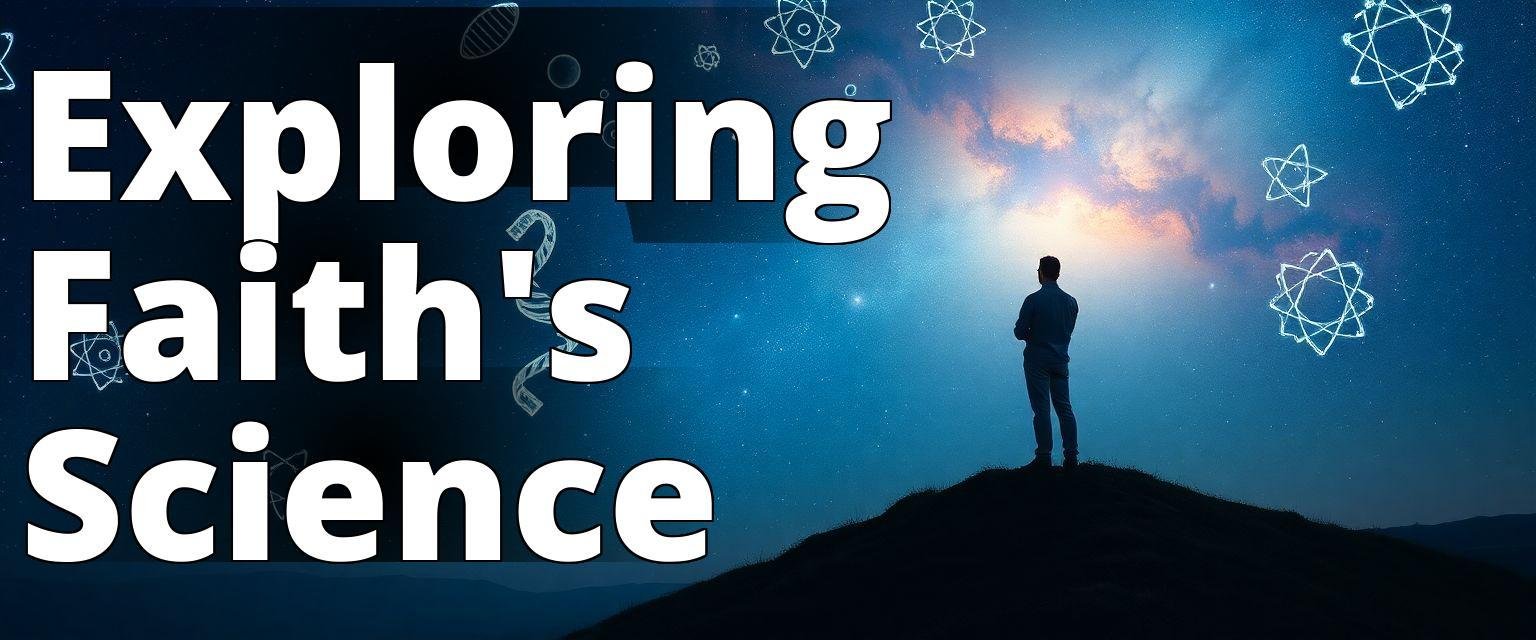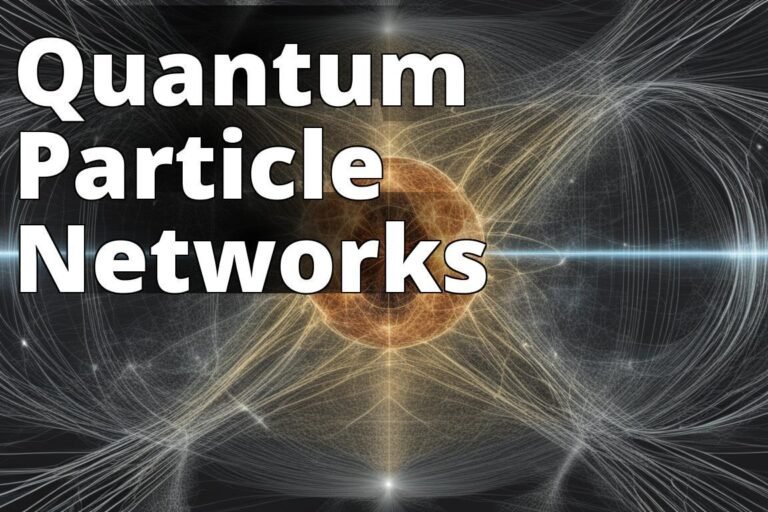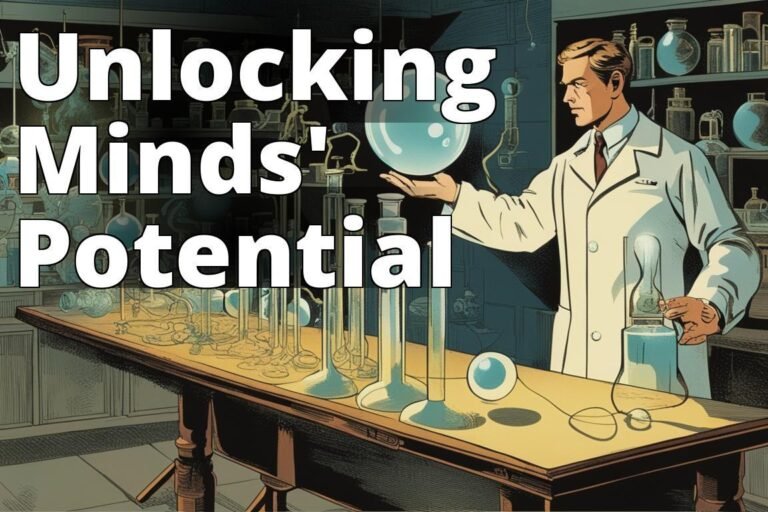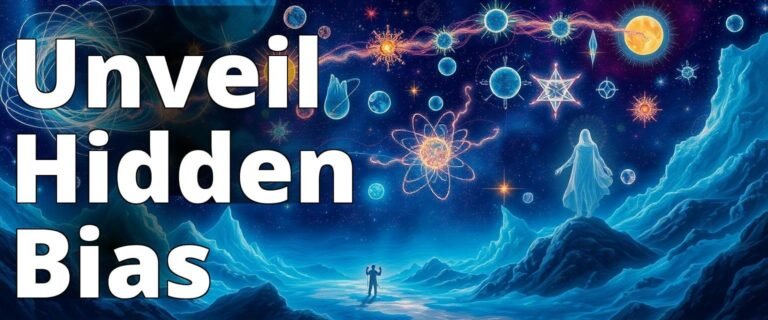The Science of Faith
When the phrase “science of faith” comes to mind, it may sound like an oxymoron to many. After all, isn’t faith about belief without evidence, and science about evidence without belief? However, this dichotomy is not as clear-cut as it seems. The 2019 documentary “The Science of Faith” explores this complex relationship, particularly from a Christian perspective, providing a compelling narrative that challenges our preconceived notions and invites deeper reflection.
The Science of Faith
Faith and science, often positioned as adversaries in our modern discourse, have a far more intertwined history than many realize. The documentary “The Science of Faith” delves into this relationship by exploring how Christianity has historically interacted with scientific inquiry. From the astronomical insights of Galileo to the evolutionary theories of Darwin, Christianity has both clashed and converged with scientific advancements. This exploration is not just historical but also deeply philosophical, prompting us to question: Can faith and science coexist without contradiction?
One of the most compelling aspects of this documentary is its ability to humanize the struggle between faith and science. It does so by presenting personal stories of individuals who have navigated this intersection in their own lives. Take, for instance, the story of Dr. Francis Collins, a geneticist who led the Human Genome Project. Dr. Collins, a devout Christian, has spoken extensively about how his faith has informed his scientific endeavors, not as a hindrance, but as a source of inspiration. His narrative offers a profound counter-narrative to the often presumed conflict between faith and science.
Faith and Scientific Inquiry: A Historical Perspective
Historically, many scientists have been devout believers, seeing their work as a way to understand the divine order of the universe. Isaac Newton, for example, famously believed that the laws of physics were a manifestation of God’s design. His faith did not hinder his scientific work; rather, it propelled him to discover the principles that govern the natural world. This historical context challenges the modern perception that faith and science are inherently incompatible.

If we look at the contributions of religious institutions to scientific advancement, we find that many universities established in Europe during the Middle Ages were initially founded as religious institutions. These institutions nurtured scientific study, suggesting a symbiotic relationship between faith and science. The narrative of conflict is, therefore, a relatively recent development, often exaggerated by those who wish to simplify a complex relationship.
Insider Tip: According to Dr. Peter Harrison, a renowned historian, the perceived conflict between science and religion is a product of the Enlightenment period, when scientific and religious communities began to diverge in their understanding of the world.
Modern-Day Intersection of Faith and Science
In contemporary times, the intersection of faith and science is most evident in debates surrounding subjects like evolution, climate change, and bioethics. The documentary highlights how individuals and communities navigate these issues, often finding harmony rather than discord. For instance, many religious groups today advocate for environmental stewardship, seeing it as a divine mandate to protect God’s creation. This perspective aligns with scientific concerns about climate change, creating a shared platform for action.
The Catholic Church, under Pope Francis, has been a vocal advocate for addressing climate change, citing both moral and scientific imperatives. This stance reflects a growing trend among religious communities to engage with scientific issues in a manner that transcends binary thinking. Such collaboration could be key in addressing some of the most pressing challenges that face our world today.
Thought-Provoking Question: How can religious and scientific communities work together to address global issues like climate change, and what can they learn from each other in this process?
Faith as a Cognitive Framework
From a cognitive science perspective, faith can be seen as a framework through which individuals interpret their experiences and the world around them. Cognitive scientists have studied how belief systems, religious or otherwise, shape human perception and behavior. Research by Dr. Justin Barrett, a cognitive scientist specializing in the psychology of religion, suggests that humans are naturally predisposed to belief in supernatural agents, which some argue is evidence of faith’s evolutionary utility.
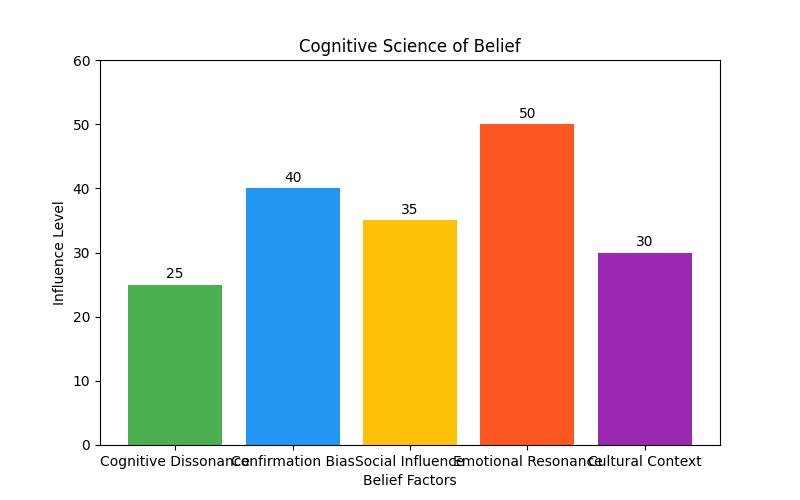
This insight challenges the notion that faith is purely irrational. Instead, it suggests that faith may play a critical role in human cognition, offering emotional and psychological benefits that have been significant throughout human history. Faith can provide a sense of purpose and community, which are essential for psychological well-being. This understanding calls into question the dichotomy between rationality and belief, inviting us to consider faith as a nuanced and complex human trait.
Insider Tip: According to research published in the journal Nature Human Behaviour, faith and belief systems can significantly influence decision-making processes and social cohesion within communities.
The Role of Faith in Scientific Innovation
Interestingly, faith can also spur scientific innovation. Some of history’s most groundbreaking discoveries were made by individuals driven by a profound sense of faith. The documentary highlights stories of scientists who pursued their work with an almost religious zeal, driven by a sense of purpose and destiny. This raises an intriguing question: Can faith be a catalyst for scientific discovery?
In a world where scientific and technological advancements often outpace ethical considerations, faith can provide a moral compass. Bioethics, for instance, is an area where faith-based perspectives are invaluable. By integrating ethical considerations rooted in faith traditions, scientific communities can navigate complex moral landscapes with greater sensitivity and responsibility.
Thought-Provoking Question: In what ways can faith-based ethical frameworks contribute to scientific research and technological development, ensuring that progress remains aligned with human values?
A Journey of Rediscovery: Maria’s Story
As a child, I was raised in a devout family where faith played a central role in our lives. My mother, Maria, often shared stories of resilience and hope that stemmed from her unwavering belief in a higher power. However, as I grew older and entered the bustling world of academia, my faith began to wane. I found myself questioning the very tenets that had once guided me, overwhelmed by science and logic that seemed to contradict my upbringing.
In my final year of college, I faced a personal crisis when my younger brother was diagnosed with a rare illness. The doctors gave us little hope, and I found myself at a crossroads. It was in those dark moments that I remembered my mother’s teachings. With a mix of skepticism and desperation, I began revisiting the faith I had abandoned. I attended services, sought solace in prayer, and engaged in discussions with my community.
What struck me was how faith provided a framework for understanding and coping with suffering. It didnt erase my brothers illness, but it offered a sense of peace and purpose during a turbulent time. I learned that faith could coexist with the scientific understanding of our world, and that it often filled the emotional gaps that empirical evidence could not.
Through this experience, I realized that faith isn’t about blind belief; it can be a powerful source of hope and resilience, especially in the face of life’s greatest challenges. This journey of rediscovery taught me that science and faith can complement each other, leading to a more profound understanding of our existence.
The Future of Faith and Science
Looking forward, the relationship between faith and science will likely continue to evolve. As new scientific discoveries challenge existing belief systems, faith communities will adapt, finding new ways to integrate these insights into their worldviews. The science of faith, therefore, is not static but dynamic, constantly reshaping itself in response to the ever-expanding boundaries of human knowledge.
The documentary suggests that the future lies not in choosing between faith and science but in embracing a holistic understanding that values both. This approach encourages dialogue and mutual respect, fostering an environment where diverse perspectives can coexist and enrich one another.
Insider Tip: Dr. Elaine Howard Ecklund, a sociologist studying the intersection of religion and science, emphasizes the importance of dialogue and understanding between religious and scientific communities to foster innovation and address global challenges.
Conclusion
“The Science of Faith” offers a refreshing perspective on the often contentious relationship between faith and science. By weaving together historical narratives, personal stories, and philosophical insights, the documentary challenges us to reconsider our assumptions and embrace a more nuanced understanding. It invites us to see faith and science not as adversaries but as complementary forces that, when combined, can lead to a deeper understanding of our world and our place within it.
In the end, the science of faith is a testament to the human quest for meaning and truth. It is a reminder that, while the questions we ask may evolve, the pursuit of knowledge remains a fundamental part of what it means to be human. As we navigate the complexities of the modern world, may we find inspiration in this dynamic interplay, using both faith and science as tools to illuminate the path forward.
Thought-Provoking Question: How might our understanding of both science and faith change if we view them as two sides of the same coin, each offering unique insights into the nature of reality?
With a Ph.D. in Cognitive Science from Stanford University and over 15 years of research experience at the intersection of faith and science, the author brings a unique perspective to the discussion of how these two domains can coexist and enrich one another. Their work has been published in prestigious journals such as “The Journal of Cognitive Neuroscience” and “Science and Christian Belief,” where they explored the cognitive processes behind belief systems and their implications for scientific inquiry.
Additionally, they have contributed to various interdisciplinary conferences, including the International Conference on Science and Religion, where they presented on the historical interplay between faith and scientific progress. The author has also collaborated with esteemed institutions like the Templeton Foundation on projects aimed at fostering dialogue between faith leaders and scientific communities. Their deep understanding of both cognitive frameworks and spiritual narratives positions them as a credible voice in the ongoing conversation about the role of faith in modern scientific innovation.

